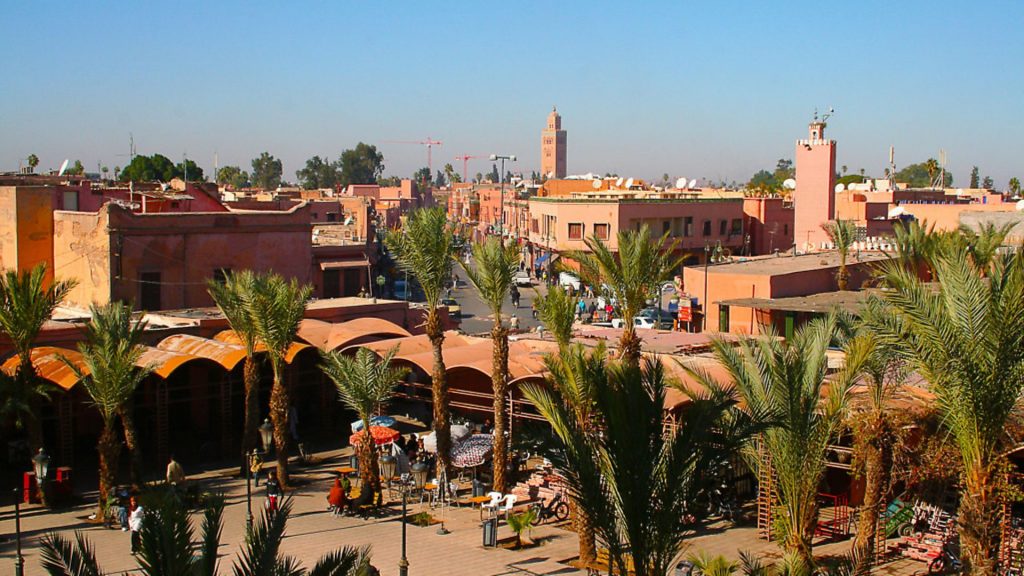
Zambian resident OSCAR MILLAR on how Brexit is being viewed from Sub-Saharan Africa.

Across Sub-Saharan Africa, Brexit has been a big story. In Zambia, where I live, it took the revelation that a popular energy drink contained Viagra to knock Britain off the satirical pages. Within days it was back on the news agenda, and one story of older men trying desperately to achieve what seems beyond them was replaced with another.
Many in this part of the world see Brexit as their problem too, but the architects of ‘Global Britain’ lack a sufficiently global perspective to notice.
Zambian newspapers have been particularly concerned with the impact Brexit could have on less developed nations. The Zambia Daily Mail reports ‘developing countries could suffer a US$1.6 billion or 5% decline in their UK exports’. There are similar fears among officials in Windhoek, with the Namibia Sun warning of ‘dire consequences’ for their exports to the UK.
Trade also dominates in Uganda, where they worry that Brexit negotiations ‘could take years, leaving trade relations between the UK and Africa in limbo’ (The Red Pepper).
Equally concerning, is the belief that British aid commitments (set at 0.7% of Britain’s gross national income) could be significantly reduced, if the UK goes into recession after leaving the EU without a deal.
In Zimbabwe there is a both optimism and pessimism over Brexit, although both reflect poorly on Britain. The optimism is founded on the belief that London’s desperation for deals will lead it to increase trade with Harare, which it had previously isolated in response to a number of former president Robert Mugabe’s policies.
The pessimism can be better described as pity for beleaguered Britain, with reports of Britons stockpiling food and drugs making headlines in the local press, and commentators bewailing the poor leadership on offer for the country.
Such laments from the Zimbabwean media on the limitations of the UK government and prospects of consumer shortages are as damning as they are ironic.
Another popular response to Brexit in Sub-Saharan Africa has been to ask what African countries can learn from Britain’s mistakes. For example, in Malawi there have been calls for greater enfranchisement of young people in the political process, with an article in the Nyasa Times arguing: ‘We must not let the youth experience the frustrations young Britons experienced during the Brexit referendum.’
In an article called ‘Brexit and its lessons for Tanzania’ (IPP Media), the writer says that ‘Brexit has opened up a can of worms, of diverse lessons which Tanzanians should not lose sight of’. These lessons largely centre around the legitimacy of referendums, and the impact that the 2016 vote could have on the unity of the UK.
As a country which has minority groups and geographical power struggles, Tanzania sees Brexit as a lesson in how not to engage with the challenges it is facing.
The theme of a fractured nation and split allegiances is taken up in an opinion piece from the Desmond Tutu Centre For Leadership which sees parallels between recent events in Britain and ‘centuries of the protestant reformation’ (City Press).
Evidently, many in Africa see Brexit as a historic moment, but also a contemporary history lesson, contributing to a future where the UK’s mistakes can be avoided. While modern Britain has been proud of its technical and intellectual exchanges with African nations, the views expressed in its newspapers show how Brexit is having an impact on British legitimacy and authority internationally.
An article in Botswana’s Sunday Standard says Brexit offers a ‘cautionary tale of zealous patriotism’ and charts Britain’s journey from leader to example not to follow.
The country’s press have reported how former president Ian Khama happily made an example of the UK when he told officials that they ‘have nothing more to learn from their former political master as the British people are now more confused than ever’.
Even following the events in the UK from afar, it is easy to see why the British people are confused. In contrast, the perspectives in Sub-Saharan nations are diverse, but clear; while Brexit may affect them, that cannot compare to how it has affected their view of Britain.
Oscar Millar is a researcher and development practitioner who is working with the Zambian government and a British NGO.









